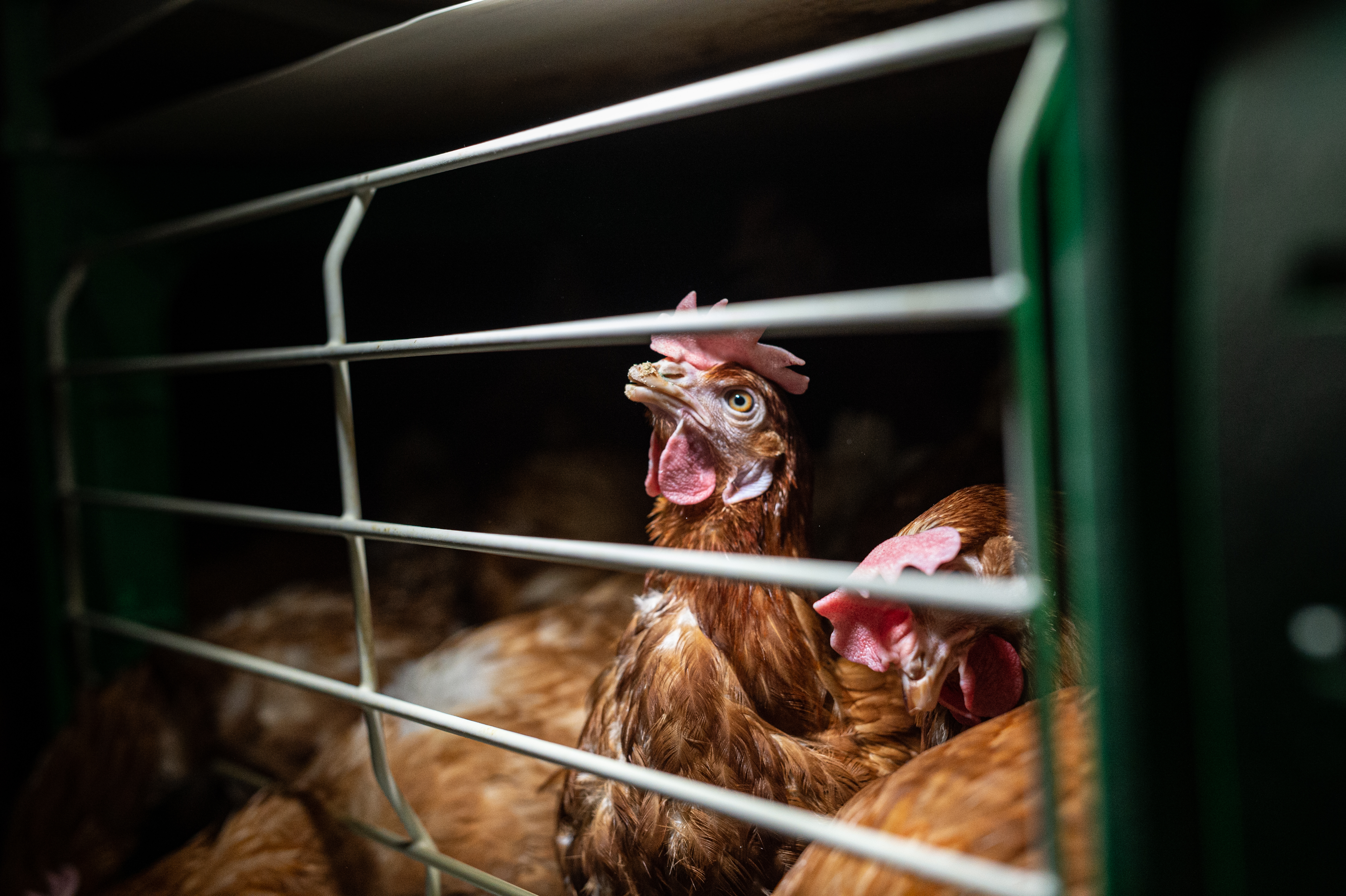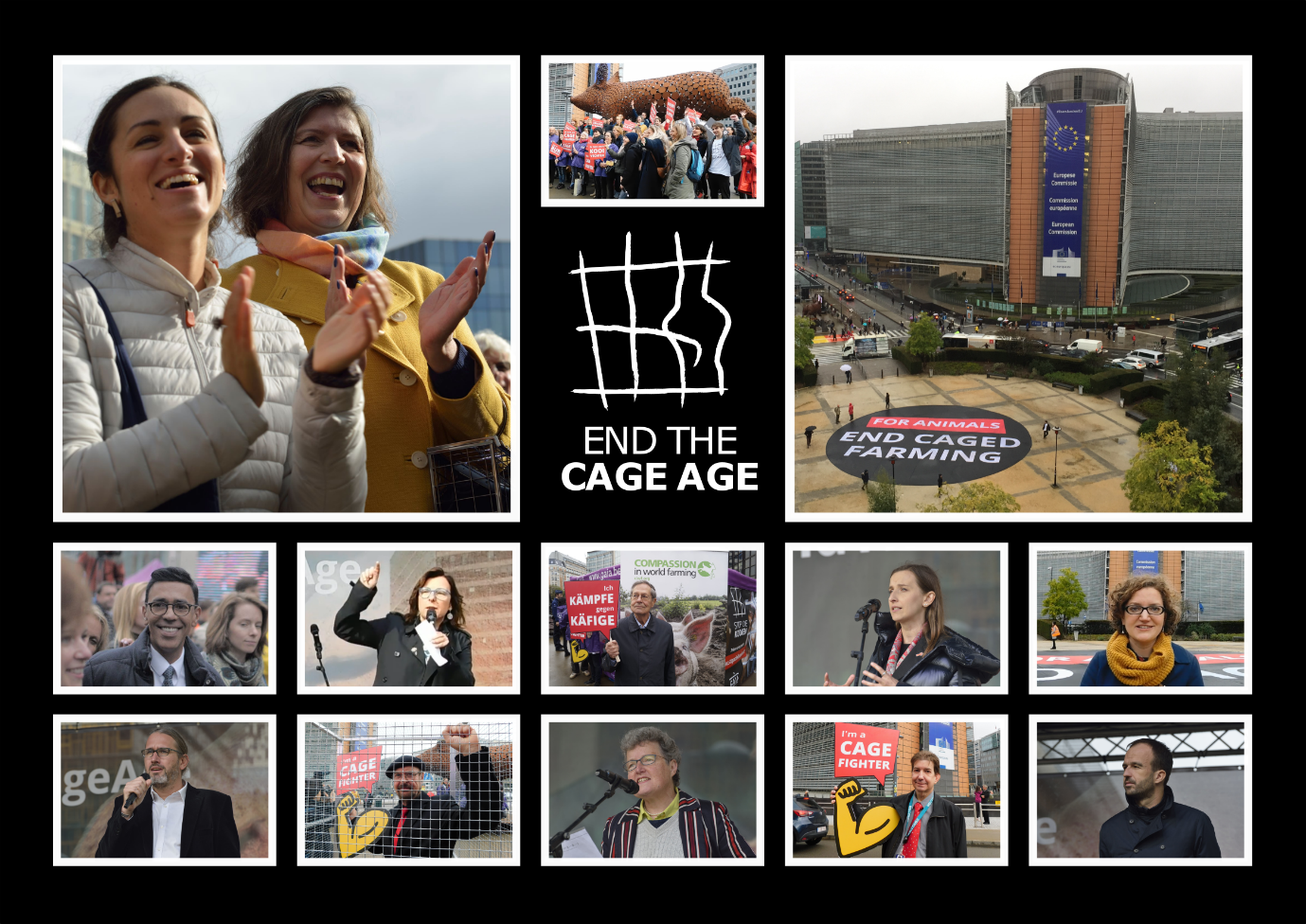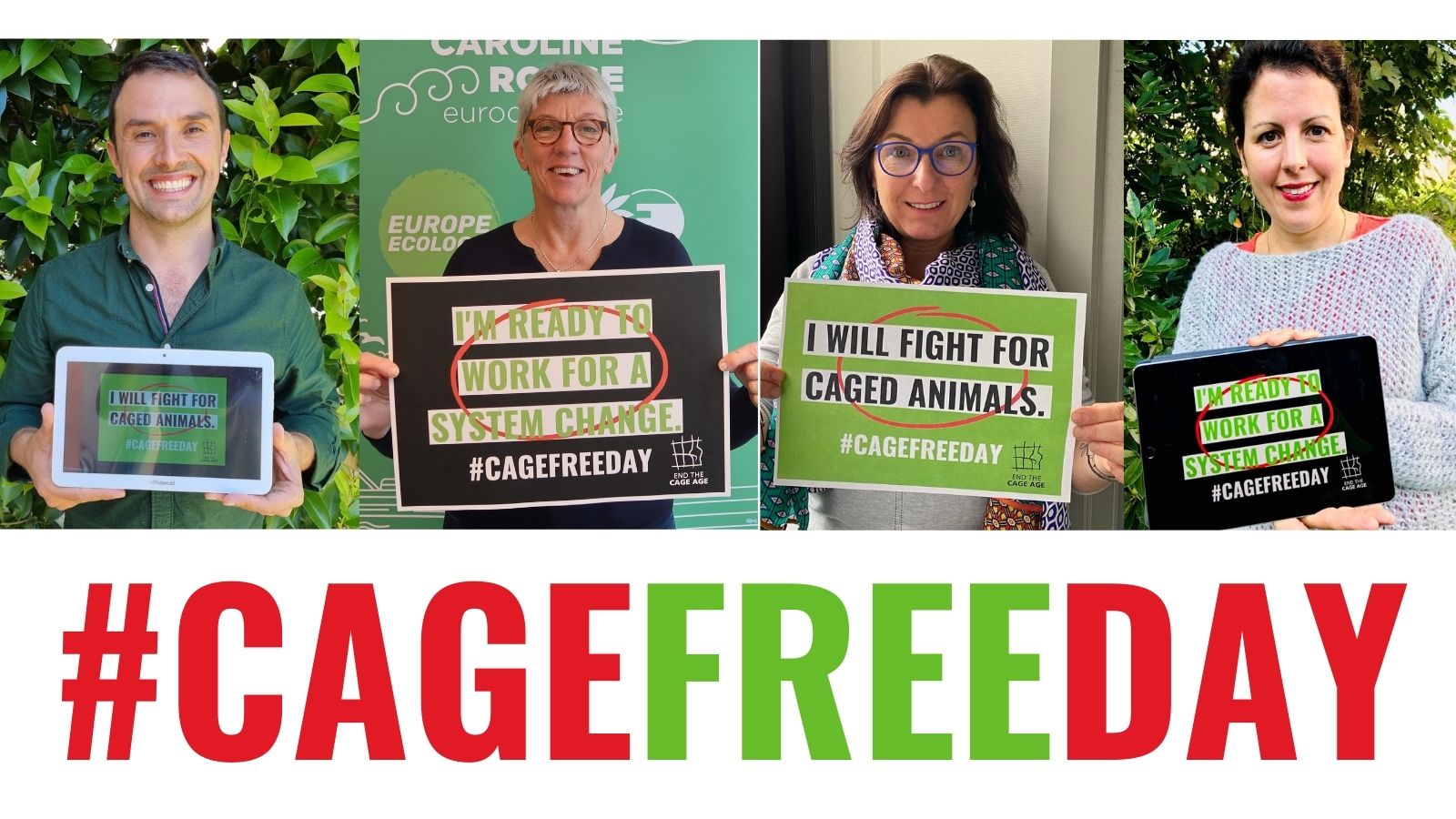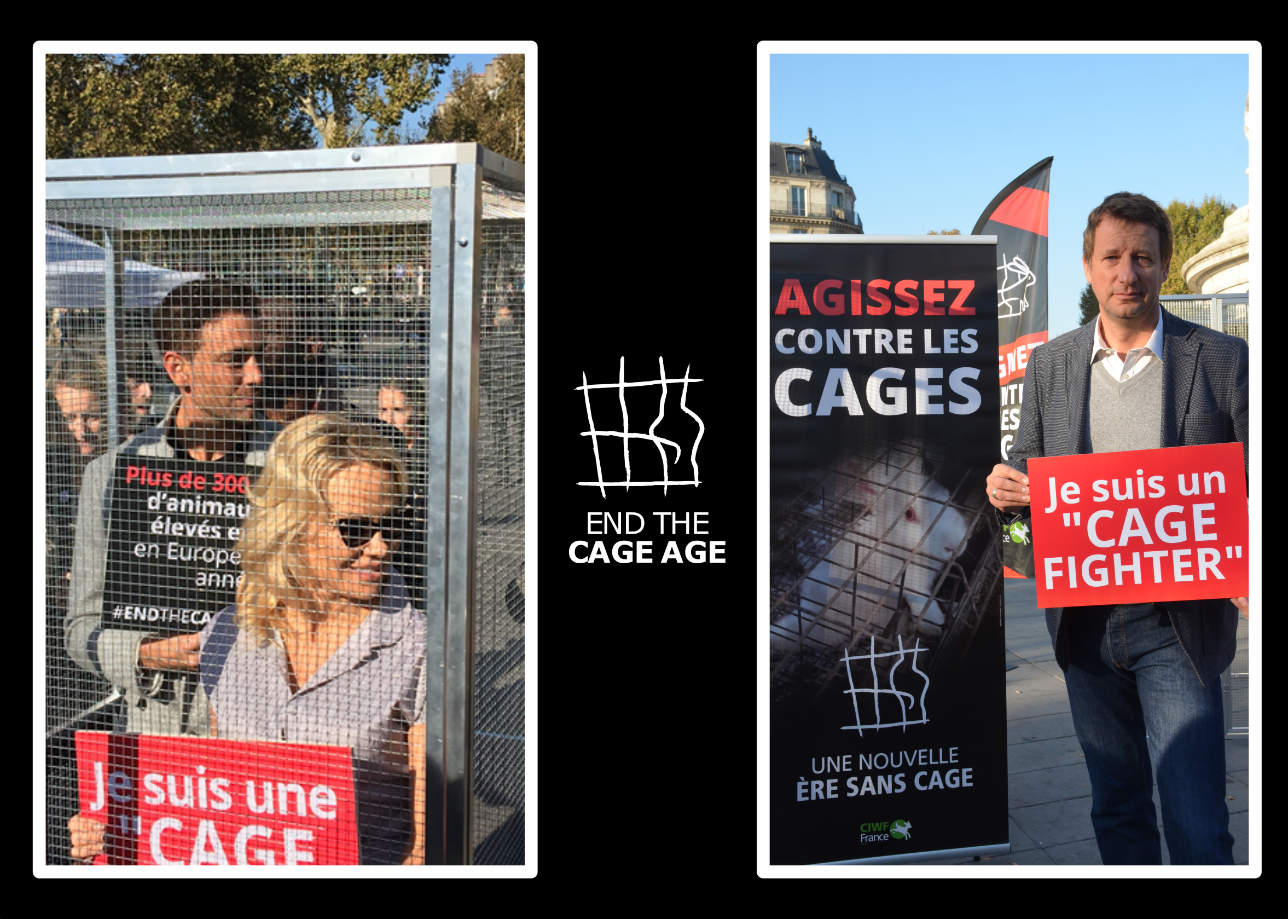Members
Chair:
-
Anja Hazekamp – MEP (GUE/NGL, NL)
Members:
-
Caroline Roose – MEP (Greens/EFA, FR)
-
Fabio Massimo Castaldo – MEP (NI, IT)
-
Francisco Guerreiro – MEP (Greens/EFA, PT)
-
Jiří Pospíšil – MEP (EPP, CZ)
-
Manuela Ripa – MEP (Greens/EFA, DE)
-
Maria Noichl – MEP (S&D, DE)
-
Marie Toussaint – MEP (Greens/EFA, FR)
-
Mario Furore – MEP (NI, IT)
-
Marisa Matias – MEP (GUE/NGL, PT)
-
Martin Hojsik – MEP (Renew Europe, SK)
-
Michaela Šojdrová – MEP (EPP, CZ)
-
Michèle Rivasi – MEP (Greens/EFA, FR)
-
Petras Auštrevičius - MEP (Renew Europe, LT)
-
Sirpa Pietikäinen – MEP (EPP, FI)
-
Stelios Kouloglou – MEP (GUE/NGL, GR)
-
Sylvia Spurek – MEP (Greens/EFA, PL)
-
Thomas Waitz – MEP (Greens/EFA, AT)
-
Tilly Metz – MEP (Greens/EFA, LU)
-
Thomas Waitz – MEP (Greens/EFA, AT)
-
Zdzisław Krasnodębski - MEP ( ECR, PL)
The Working Group is coordinated by Olga Kikou from Compassion in World Farming.
Background/impetus
The EU recognises that animals are sentient beings. However, over 300 million farm animals, including hens, quail, rabbits, sows and ducks, are being confined in cages on EU farms each year. The use of cages in farming deprives the animals of their autonomy, rendering them entirely dependent on their keepers for essential needs such as food or water. It severely limits them in meeting their essential behavioural, physical and psychological needs.
Many farmed animals are kept in cages for all or much of their lives. Scientific research shows that this implies very poor welfare outcomes. Cages provide very limited space for the animals, sometimes both vertically and horizontally, preventing them from performing basic postural changes such as sitting, standing up, walking or turning around. The restriction of movement and exercise causes health problems such as low bone density.
In confining them in small spaces, cages prohibit animals from expressing their repertoire of natural behaviours, leading to frustration of their mental needs. Cages isolate animals or keep them in small tightly-packed groups, preventing them from escaping aggressive behaviour by cage-mates. Cages can also help to spread diseases.
Caging is not only cruel but also unnecessary: viable cage-free systems with high welfare exist.
In recent years the cage-free movement has been gaining ground in the EU and in the US. More voices are taking a stand against the use of cages in farming and speaking out against ‘enriched’ cages. Recently, Massachusetts, California, Washington, Oregon, Michigan, Colorado, Rhode Island, Connecticut and Nevada have banned cages for egg-laying hens and the sale of products that do not meet the States’ new welfare requirements.
Until recently, the lack of EU leadership on the issue pushed some governments of EU Member States to introduce national legislation to ban certain forms of caged farming:
-
In Austria, ‘enriched’ cages for hens will be illegal in 2020, cages for meat rabbits have been banned and sow stalls are only permitted for the first ten days after insemination.
-
In Belgium, rabbits raised for meat and breeding females will no longer be kept in cages by 2025.
-
In Czechia, ‘enriched’ cages for hens will be banned from 2027.
-
In Denmark, there is a ban on sow stalls from the time of weaning with full effect by 2035.
-
In Germany, enriched cages for hens will be illegal from 2025, sow stalls will be illegal from 2029 and farrowing crates will be illegal after 5 days around birth from 2036.
-
Luxembourg has banned all ‘enriched’ cages for hens.
-
The Netherlands only permits sow stalls for the first four days after insemination.
-
In Slovakia, the poultry farmers union, trade union and the agriculture ministry have signed a memorandum to phase out cages by 2030.
-
Sweden has banned all cages for sows – both sow stalls and farrowing crates.
As consumers expect high welfare standards when buying animal products, major retailers on both sides of the Atlantic are adopting cage-free farming. At the same time, civil society organisations are embracing the call for an end to the use of cages in animal farming and actively campaigning on this issue.
The adoption by the Parliament in 2016 of its own-initiative Report on Minimum Standards for the Protection of Farm Rabbits (2016/2077/(INI)) was a political success that highlights citizens’ growing concerns about farm animal welfare and the increasing political will to improve the situation.

Objectives/mission
To address these concerns, the Intergroup decided in October 2017 to set up an ad-hoc working group, which was headed by Stefan Eck MEP (GUE/NGL, DE) and Eleonora Evi MEP (EFD², IT). Since June 2019, the group is co-chaired by MEP Evi (now Greens/EFA), together with MEP Anja Hazekamp (The Left, NL). Since October 2022 the group has been chaired by MEP Anja Hazekamp. Almost all political groups are represented in the Working Group.
The Working Group has the following goals:
-
Raise awareness in the European Parliament about the serious welfare issues surrounding the use of cages in animal farming;
-
Present the problems along with solutions & actions MEPs propose to take;
-
Put pressure on the Commission and Member States to consider legislation that leads to the end of cages in EU farming;
-
Host and participate in a number of events in the European Parliament;
-
Support local campaigns at Member State level and act as spokespersons;
-
Join public campaign activities in order to apply further pressure and draw attention to the issue;
-
Prompt press interest in Brussels and elsewhere in Europe;
-
Call on the Commission to produce a timeline and legislation aiming at ending the use of cages.
The main objective of the Working Group is to support and promote the European Citizens’ Initiative (ECI) ‘End the Cage Age’. The ECI seeks to mobilise citizens throughout the whole EU against cruel caged systems and to make their voices count inside the EU institutions.
'End the Cage Age' ECI – largest EU petition for farmed animals
The ‘End the Cage Age’ ECI was launched in late September 2018 and the collection of public signatures ran for one year, the time limit set by the rules on ECIs. ‘End the Cage Age’ calls on the European Union to phase out the use of cages for farmed animals.
A total of 1.4 million verified signatures were gathered from citizens across all EU member states, easily surpassing the 1 million signatures needed for the ECI to be valid. ‘End the Cage Age’ is only the sixth ECI to meet this requirement.
It also exceeded the minimum number of signatures required in 18 member states. ‘End the Cage ‘Age’ is the largest European petition ever on farm animal welfare.
The ECI was coordinated by the international NGO Compassion in World Farming and is supported by a network of over 170 NGOs and federations across Europe that want an end to the use of cages in EU farming.
‘End the Cage Age’ aims to draw the attention of both the general public and policymakers to the poor animal welfare caused by cages. The ECI has built a movement of citizens calling for an end to the use of cages in EU farming.
The campaign calls on the Commission to prohibit the use of:
-
cages for farmed rabbits, pullets, broiler breeders, quail, ducks and geese
-
enriched cages for laying hens;
-
farrowing crates for sows;
-
sow stalls, where not already prohibited;
-
enclosed calf pens, where not already prohibited.
Following verification of the signatures by member state authorities, the ECI was formally handed in to the European Commission on 2 October 2020, coinciding with World Day for Farmed Animals.
Since then, MEPs have been involved in several actions in support of the ECI:
On 8 October 2020, the Working Group coordinated a letter to the European Commission, urging it to phase out the use of cages for farmed animals. Eighty-six MEPs signed on to this call.
On 25 November 2020, 13 MEPs sent a video message to the European Commission urging it to end the use of cages in farming.
On 15 April 2021, the European Parliament held its formal hearing on the ECI. The hearing showed overwhelming support for phasing out cages from MEPs and representatives of other EU institutions, including the European Commission.
In follow-up to the European Parliament hearing, on 29 April 2021 101 MEPs from across the political spectrum wrote to the Commission to call for a phaseout of cages.
On 10 June 2021, the European Parliament urged the European Commission to make cages for farmed animals illegal across the European Union by 2027, adopting a resolution on the ‘End the Cage Age‘ ECI. The resolution was passed by an overwhelming majority, with 558 MEPs in favour to 37 against and 85 abstentions. It urges the Commission to revise the outdated EU directive on farmed animals, Directive 98/58/EC, in order to phase out cruel cage systems. MEPs also highlighted the need to ensure that all products placed on the EU market – including imported ones – comply with future cage-free standards. They stressed the need to provide adequate incentives and financial programmes to support farmers through the transition.
Shortly afterwards, on 30 June 2021, the European Commission made a historic commitment to phase out cages in animal farming across the EU. It plans to prohibit cages for hens, mother pigs, calves, rabbits, ducks, geese and other farmed animals, looking at a phase-out date by 2027. The Commission announced it intends to “put forward a legislative proposal by the end of 2023 to phase out and finally prohibit the use of cages for all the animal species and categories referred to in the initiative”. The Commission will also address the issue of imported products from non-EU countries, committing to look at “introducing rules or standards for imported products that are equivalent to the EU’s”.
Having achieved this big win, we now enter the next big phase with the start of the legislative process. The Commission is in the process of evaluating the details of how the ban will roll out and aims to present a legislative proposal to revise the relevant legislation by the end of September 2023.
In addition, several events have been held in support of the ECI since 2018:
Launch event, EU Parliament (2018)
The ECI was launched on 25 September 2018 with a conference and a week-long exhibition hosted by Eleonora Evi MEP and Compassion in World Farming. Twenty-one MEPs from most political groups (EPP, S&D, EFDD, Greens/EFA, GUE/NGL and ECR) and from 13 European countries spoke at the launch.
Related events were held in many Member States with the support of MEPs and national NGOs – including an event with Pamela Anderson and Yannick Jadot MEP (see photo above). MEPs also held online actions, to help the ECI collect signatures.
Easter Action (2019)
MEPs from the Intergroup took part in a 2019 Easter action in support of ‘End the Cage Age’.
Throughout the Easter holiday season, images of bunny rabbits joyfully hopping around as well as baby chicks on green grass could be seen everywhere. Sadly, nothing could be further from the truth as hundreds of millions of rabbits and hens across Europe lead miserable lives confined in cages.
That is why, ahead of Easter, MEPs from various political groups and countries showed their support for the ECI. They were photographed and recorded short videos, explaining that the Easter holiday presents a disconnect between our perceptions and the reality for farm animals.

Celebratory Rally (2019)
On 8 October 2019, eleven MEPs, other citizens and representatives from the network of over 170 NGOs challenged the European Commission, from the shadow of its Brussels headquarters, to respond to ‘End the Cage Age’ — the biggest ever concerted effort to improve the welfare of farmed animals across Europe.
This rally celebrated the ECI soon after it had surpassed the 1 million signatures required from all across Europe. The organisers placed an 18-meter circular banner in the middle of the Schuman roundabout and a 10-meter sculpture of a pig jumping to freedom.
Webinar on the transition to cage-free farming (2020)
On 13 October 2020, the Working Group hosted a webinar on cage-free farming. MEPs Eleonora Evi, Anja Hazekamp, Martin Hojsik, Sylwia Spurek, Caroline Roose, Manuela Ripa and Michaela Šojdrová spoke at the event, organised by Compassion in World Farming.
During the webinar, the Institute for European Environmental Policy (IEEP) launched its report on how to transition towards cage-free farming in the EU. Ending the caging of animals, as part of a transformative change in animal agriculture, could make farming more sustainable and could bring better rural jobs, the report found.
Ruud Zanders from the Dutch farm Kipster presented an example of a successful commercial high-welfare, eco-friendly laying hen farm. Other speakers included representatives of the Federation of Veterinarians of Europe and the animal welfare unit of the European Commission.
EU Parliament researchers confirm we can end the cage age (2020)
On November 2020, a new study by the European Parliament’s research services confirmed that cage-free housing systems can be achieved in Europe, recommending financial and policy measures in the short term and legislation in the long term.
This 50-page report presents alternatives to caged housing of farmed animals, such as laying hens and sows. It confirms that cage-free housing has a positive effect on animals and that such a transition would not impact sustainability negatively.

World Cage-Free Day (2021 and 2022)
On World Cage-Free Day on 13 October, MEPs celebrated the commitment to end the use of cages in animal farming as part of the upcoming reform of the animal welfare legislation. They raised awareness of the cause in news outlets and on social media.

Members

Anja Hazekamp
Netherlands

Fabio M. Castaldo
Italy

Francisco Guerreiro
Portugal

Martin Hojsík
Slovakia

Stelios Kouloglou
Greece

Marisa Matias
Portugal

Tilly Metz
Luxembourg

Maria Noichl
Germany

Sirpa Pietikäinen
Finland

Manuela Ripa
Germany

Michèle Rivasi
France

Sylwia Spurek
Poland

Petras Auštrevičius
Lithuania

Marie Toussaint
France

Jiři Pospíšil
Czechia

Mario Furore
Italy

Caroline Roose
France

Zdzisław Krasnodębski
Poland

Thomas Waitz
Austria

Michaela Šojdrová
Czechia

